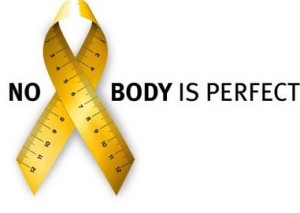Every job has its own level of stress attached to it. Even if you truly love your job, or think your job is too easy to be stressful, don't be fooled; there is always a small level of pressure on a subconscious level. Even the little things can sometimes be a strain: having to get up at the same time each day to go to the same place, there could be someone you don’t get on with but have to put up with on a daily basis, the food may be off or even an unexpected request for overtime.
Those are minor annoyances that can disrupt our routines and may put additional pressure on us. That feeling of dread and pressure. The day drags on or goes too fast. You feel disconnected and grumpy. Nagging thoughts creep up on you. You start to think that there is no way you can get anything done now, and do it all on automatic pilot.
That is a real bad day.
Now think: how often do you feel this way?
There are many people who have these feelings every day and this group just keeps growing.
When anxiety is stress related it is hard to “get rid of it” as some might say. Work means having to be there day after day. So many people facing work stress feel as if they are descending into the gates of hell the moment they get up to get ready for another day at work. Then, at the end of the day, when the doors of their job close behind them there is no joy. There is only the continuous monotonous voice that tells them that “tomorrow will be exactly the same and so will the day after that and the day after that, and …”
These days the work floor is more competitive than ever. You have to work hard to stand out and be noticed. Overwork, trying to prove yourself, aiming for promotion and the fear of losing your job have made that many workers suffer extreme anxiety.
You might recognise some of the symptoms in you or in someone you know:
Mood Swings
Short temper
Highly Emotional
Hyperventilation
Heart Palpitations
Thoughts of death
Feeling of dread
Panic Attacks
Feeling out of control
This is not how work should make you feel. If you recognise this in yourself or see it in others, try to get them, or yourself help.
The biggest problem is the fear of talking about it. You may fear people will think the responsibility of your job is too much for you when admitting to feeling anxious. You may fear it might cost you your job. This is not likely, and in any event: if your symptoms get worse this could lead to making errors or a complete burnout and that is far more serious than just trying to get help.
You might wonder: What can a counsellor do for me? They can't do my job for me, can they? Sadly no, they are sadly unable to do that. But there is a lot that they can do to improve the quality of your life.
Research has shown that when it comes to treating anxiety disorders counselling and therapy are usually the most effective options. This is because the focus is placed not just on the symptoms, but on all the underlying problems. Your anxiety and stress did not suddenly appear out of nowhere, there was a build up to it that needs to be found. Counselling can also help you manage panic attacks, build your self-esteem and endurance and help you return to a more happy way of living.
If you are aware of anxiety building in your life or that of a loved one, don't think “well, I'm not making any mistakes yet.” Or “Other people can handle this, why can't I?” Many people have gone before you that thought the same way. They just wanted to “finish this project”, felt that one more all-nighter wouldn't matter etc. They were wrong and often led to consequences they regret to this day. So why would you wait until you have reached that wall, that point of no return? Why wait until that is accident or that completely preventable screw up?
Understand that there is no harm in seeking help, no shame. We seek help and treatment for all other parts of our body when these are in pain. Your brain is a part of your body and is suffering its own form of pain right now. If you cut yourself you put a band aid before the wound might become infected. If you pull a muscle when jogging you stop running for the day. Your brain is like a muscle that has been working too hard, give it the band aid or break it needs. Counselling is always there for you to help you do this.
...





 When we fall in love the last thing on our minds is future pain. The beginning of love is joyand quite thick rose tinted glasses. Everything about our partner is perfect, nothing is annoying, and it is all practically perfect.
When we fall in love the last thing on our minds is future pain. The beginning of love is joyand quite thick rose tinted glasses. Everything about our partner is perfect, nothing is annoying, and it is all practically perfect.
